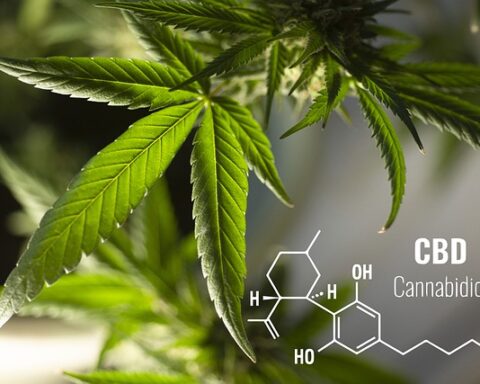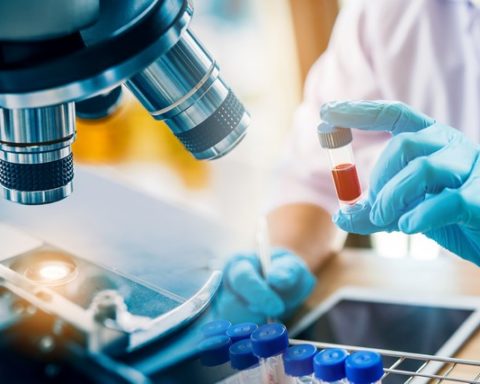Epidiolex, the catchy name of a new drug to treat complex seizures, has generated a wave of controversy around the medical world. Federal advisers recommended the approval of the first prescription drug in which the main component is cannabidiol (CBD), a natural cannabis’ derivative with low addictive power. This drug would be approved just for the treatment of seizures caused by the Lennox-Gastaut and Dravet syndromes, Complex Tuberous Sclerosis and Infant Spasms.
Epidiolex represents a new hope for people living with intractable seizures and rare cases of epilepsy — Philip Gattone, president of the Epilepsy Foundation
Organized groups of patients have already given their blessing to the new medication. Many health professionals seem to agree with the words of Gattone, adding that the confidence of having a product previously approved and manufactured by a prestigious pharmaceutical company is priceless, considering a large number of cannabis products that swarm in the market without any control.
GW Pharmaceuticals, the British company in charge of manufacturing Epidiolex, ensures on its website that Epidiolex has gone through all the necessary tests for its approval by the FDA as well as by any other regulatory authority around the world. All trials in which the drug was tested have shown a greater reduction in seizures in these patients compared to placebo.
“It’s incredibly important as a physician prescribing to patients that we know what we’re giving them and we know we give them one month will be the same that we give them three or six months later,” said Dr. Orrin Devinsky, director of NYU Langone Epilepsy Center, during an NBC interview.
In addition, the defenders of Epidiolex comment that its composition differs a lot from other medicines with cannabis derivatives since it does not contain THC, the constituent that causes most of the addictive effects of marijuana that is used for recreational or even medical purposes.
But as expected, the opponents of cannabis did not take too long to appear and manifest.
The Drug-Free America Foundation stated the following in a section on its website titled Q&A: Marijuana: “Many who claim to need marihuana medicinally simply want to use it recreationally. In states with marijuana dispensaries, the vast majority of patients are young men between the ages of 18 and 25, not cancer or AIDS victims used in voter ads to exploit our compassionate nature.”
In fact, Centers for Disease Control and Prevention reported that epilepsy is becoming more common in the US. Three million adults report they have epilepsy now, up from 2.3 million in 2010.
Even some advocates of the use of medical marijuana have recognized drawbacks with their project. We can read on ProCon’s medical marijuana website: “We recognize the possibility that not all medical marijuana users will register for identification cards and that not all registered persons have valid medical uses for marijuana.”
The legal scope remains as an issue to be solved. Important federal entities in the US such as the DEA and the FDA still consider marijuana as an illegal substance, and the panorama regarding its multiple components is not clear. Police forces usually arrest any person in possession of marijuana or any of its derivatives, usually without saying a word and regardless of whether there is any justified cause for its use, and we do not know to date how they will behave with those individuals who are found with Epidiolex in their hands, considering that CBD is its main component.
There is also the fear that once approved, Epidiolex may serve as a springboard for marijuana traders, legal or not, to take advantage of this scenario as free advertising for their products, so despaired patients or relatives may fall into their trap.
Despite the controversies, there seems to be a consensus among detractors and defenders that cannabidiol (CBD) has important therapeutic effects and few adverse effects. The FDA’s own advisers have already raised the possibility that this drug could also be used to treat autism, anxiety disorders, and inflammatory and autoimmune disorders.
Once the commercialization of Epidiolex has been approved, we will be able to see the behavior of all those involved in this historic and unprecedented event: health and judicial authorities, doctors, pharmacists and especially patients, whose acceptance of the drug will be what sets the tone.
References:
Fox, Maggie (2018, April 19). FDA committee recommends cannabis-based drug. NBC News, retrieved from: https://www.nbcnews.com/health/health-news/fda-committee-recommends-first-cbd-oil-product-n867511
Drug Free America Foundation, Inc. (2013). Marijuana. Questions and Answers, retrieved from: https://dfaf.org/qa/marijuana/
Patel, Anup (2018, January 27). A Parent’s Perspective: the LGS Epidiolex Study. Epilepsy.com, retrieved from: https://www.epilepsy.com/article/2018/1/parents-perspective-lgs-epidiolex-study
Should Marijuana Be a Medical Option? ProCon.org. Understand the issues, understand each other, retrieved from: https://medicalmarijuana.procon.org/
U.S. Food & Drug Administration (2017). FDA and Marijuana. News, retrieved from: https://www.fda.gov/NewsEvents/PublicHealthFocus/ ucm421163.htm
United States Drug Enforcement Administration (2017). Marijuana/Cannabis. Drugs of Abuse. Chapter VIII, 74-77.








